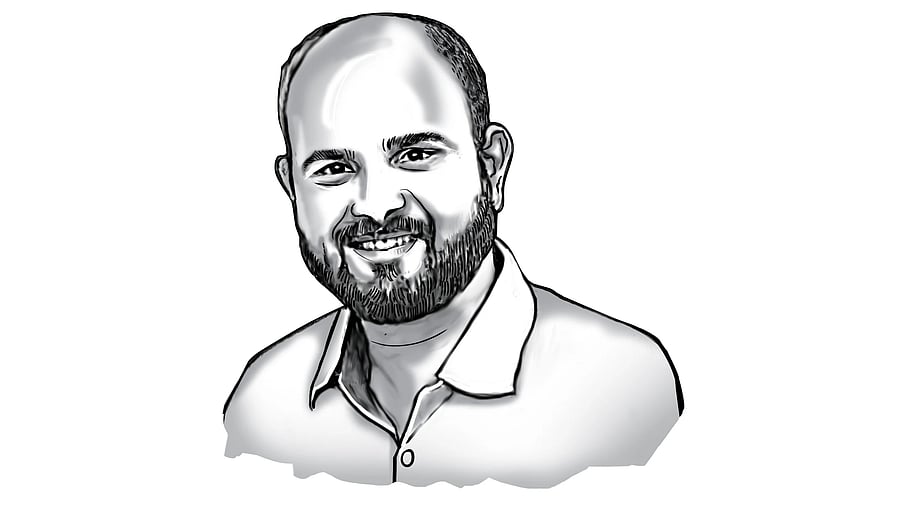
Rahul Jayaram teaches at the School of Film, Media and Creative Arts, R V University, Bengaluru @rahjayaram
In 1999, as an undergraduate student at Bombay University, drowning in my passion for literature, philosophy, and history, and earning some ‘pocket money’ over part-time gigs, I got my first chance to watch an internationally renowned actor in complete pomp on stage. He was a Bond villain from Octopussy, and at the time, reckoned as one of the great Shakespearean actors. Steven Berkoff landed for his shows in India as a medieval emperor. For a week or more, he was all over print and television, and sliding and slipping into some part of Shakespearana in interviews. One Star News interviewer queried on why he obsessed over Shakespearean villainy (his show that had totted up appeal worldwide was called Shakespeare’s Villains). Looking into her eyes, part seductive, part chilling, he said, lowering his voice to a mirthful rasp, “That’s because villains are far more interesting than heroes,” and raised an eyebrow, “for most heroes are dumb.”
At the jammed to the rafters show, I’d never heard English invectives, including a seven-alphabet-long word that Shakespeare and Elizabethan dramatists used so nonchalantly, evoked with such emotion, power, and elegance. In that melange of selections, Berkoff imparted dramatic richness to the Bard’s apogees of evil in Richard III, Edmund from King Lear, Coriolanus, Othello, Macbeth, and Lady Macbeth. By the end of it, they seemed anything but evil, their justifications so plausible. Berkoff hissed, grunted, schemed, plotted, sighed, squealed, and murmured like them, ensuring all these villains made home in the audience’s heart. Like imperious storytellers anywhere, the division between the evil and the good in the setting of art and drama was questioned, bent, subverted, or dislodged.
Over my time of watching cinema from different parts of India, I’ve developed much fondness for our cinematic villains, and veer to the view that most heroes, indeed, are dumb. Many villains appear to have picked up talents from the animal world. M R Radha, the infamous Tamil villain who shot MGR in real life, in his acting prime against MGR, Sivaji Ganesan or Gemini Ganesan, could, between sentences, squeak like a rat, meow like a cat, bleat like a lamb, neigh like a foal, implore through sighing, or shed crocodile tears, through a hyper-malleable face fusing comedy and deceit. Nearly all the great cinematic villains possess big, sharp, beautiful eyes, expressive faces. They have also displayed incomparable voice and body language control, reared generally on ages of theatre craft.
There is one turn and stare that the Telugu and Tamil icon, S V Ranga Rao, delivers in the 1950s Telugu film Pandava Vanavasam where he plays Duryodhana, and you know the camera is seduced by him almost over and above the young and charismatic NTR. Anyone who has done even some nominal amount of acting would tell you, the camera is the most brutal critic, and exposes any acting falsity ruthlessly. Our great villains ensure the camera becomes their vassal.
The camera could not take its eyes away from Pran and V K Singh in the 1950s and 1960s. Mr India (1987) is now known for Amrish Puri’s punchline “Mogambo khush hua”, delivered in five different ways. Later, Mukhyamantri Chandru, one of Kannada cinema’s finest villains, reprised Mogambo in the Kannada version of the film. Chandru’s punch-line “Mogambo ge maja banthu” is almost close to Amjad Khan’s Gabbar Singh asking “Kitne aadmi the?” in Sholay. Nearly all our great villains carry in them the ten faces of the mythological Ravana, the fountainhead of handsome villainy, and without whom there is no Ramayana, no story, and no Rama. May we give cinematic villainy its true due.